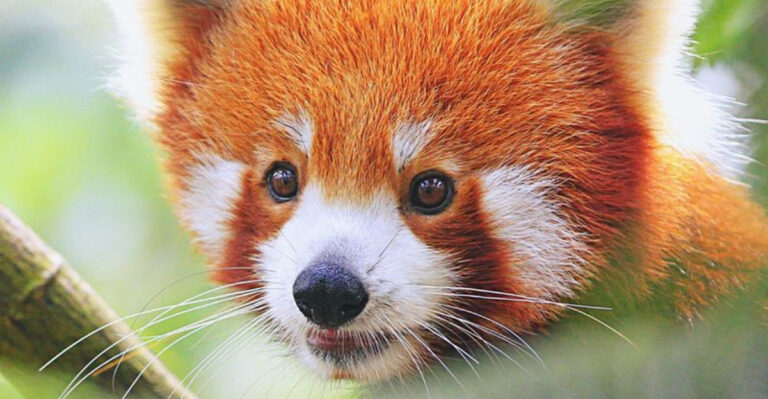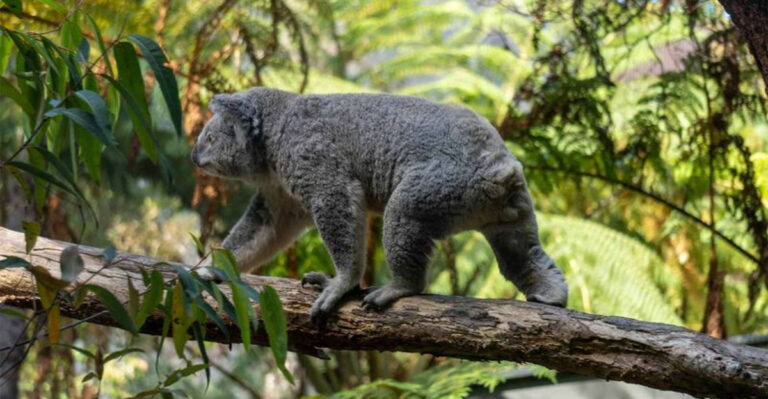14 Emotional Things Cats Will Always Remember About You
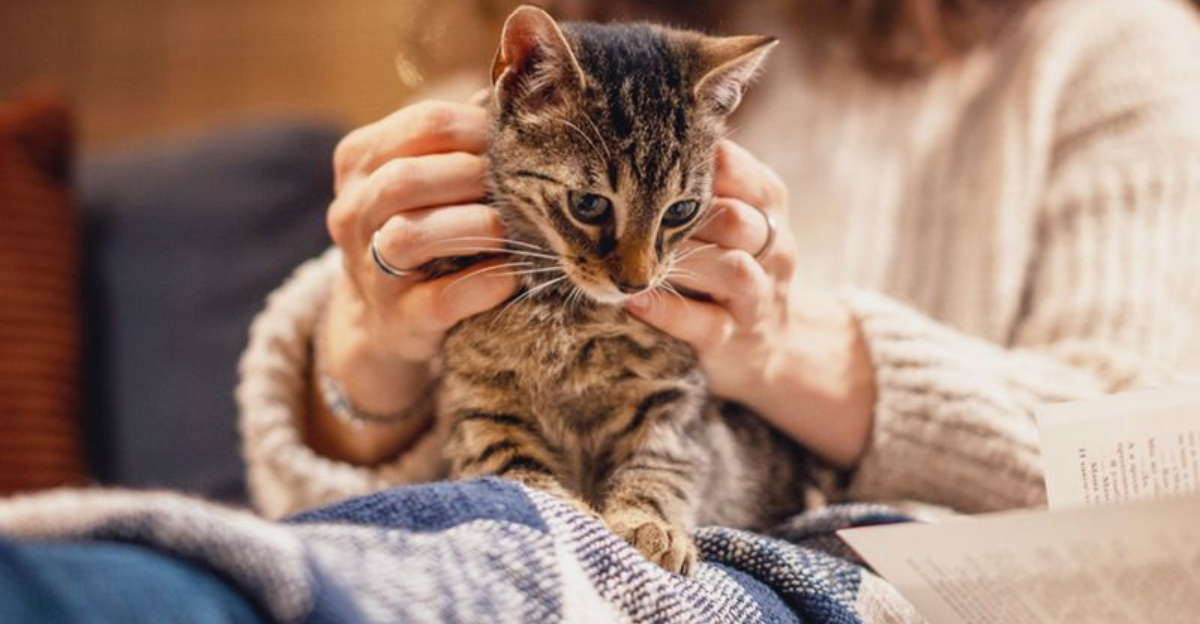
Cats might seem aloof, but they’re secretly emotional beings with remarkable memories. They form deep bonds with their humans and remember experiences that shape their relationships.
Understanding what your feline friend remembers about you can help strengthen your connection and explain some of their quirky behaviors.
1. Your Unique Scent
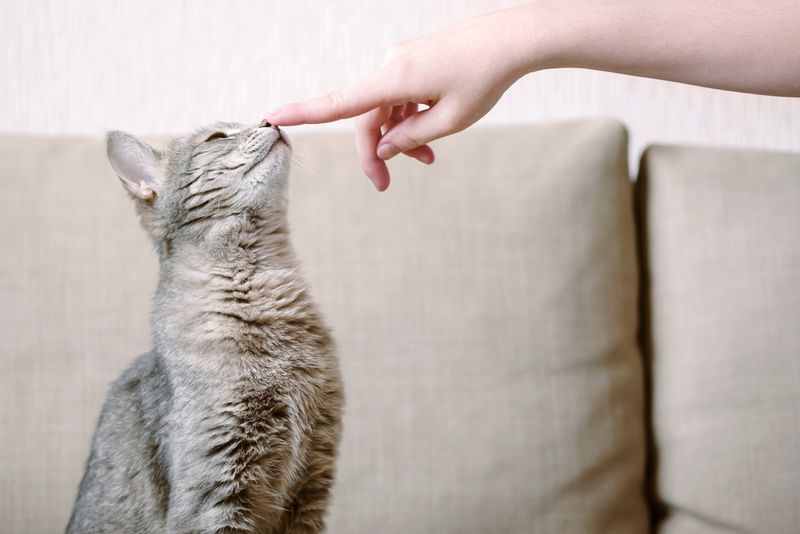
Cats have an incredible sense of smell that’s about 14 times stronger than ours. They recognize and remember your personal scent signature as distinctly as a fingerprint.
Your cat associates your smell with safety, home, and their social group. When you’ve been away, notice how they sniff you thoroughly upon return. This isn’t just curiosity – it’s them confirming their important human has returned.
2. How You Feed Them
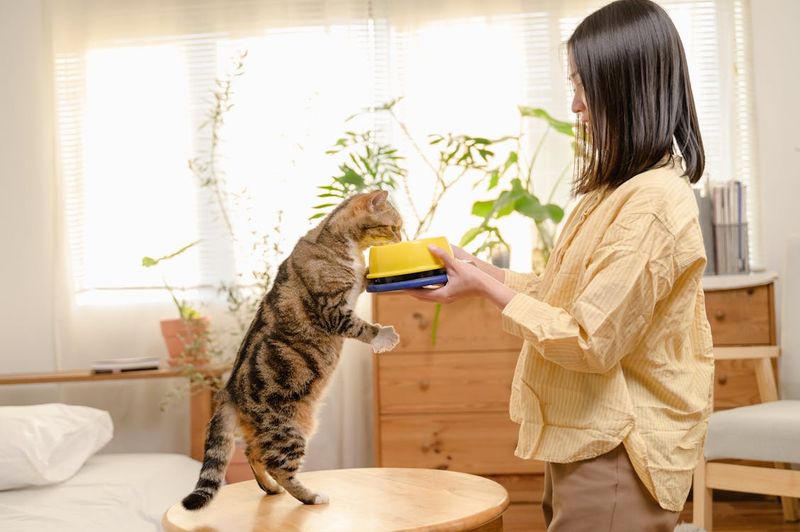
Mealtime creates powerful emotional memories for cats. They remember not just what you feed them but how you present it – the sound of the can opener, the specific bowl, even your routine movements.
Cats form associations between these feeding rituals and feeling satisfied. Many owners find their cats running to the kitchen at the exact feeding times, showing their remarkable memory for these emotionally significant routines.
3. The Sound Of Your Voice
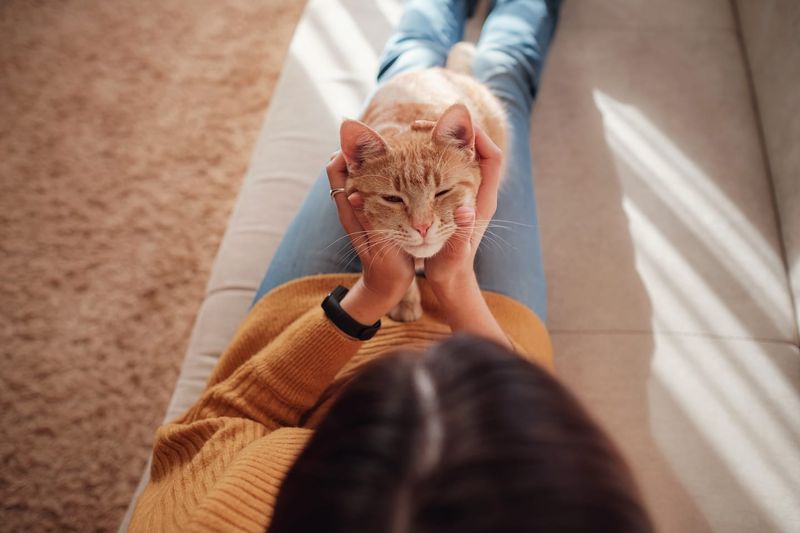
Your voice pattern registers in your cat’s memory as a unique identifier. Research shows cats recognize their owner’s voice among strangers and respond differently to it.
The tone you use matters tremendously. Cats remember if you speak to them softly or harshly. Many felines come running when their human calls in that special high-pitched “kitty voice” that signals affection and treats might be forthcoming.
4. Your Reaction To Their Behavior
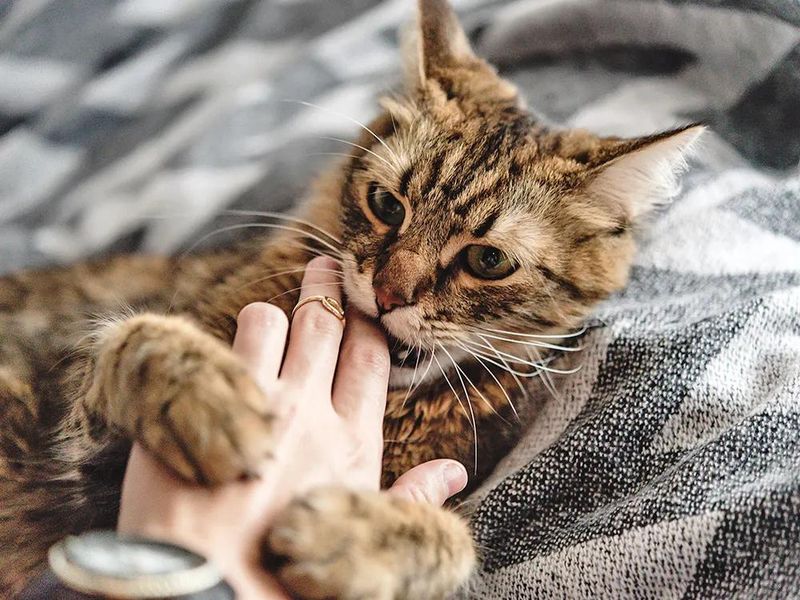
Cats are master observers who catalog your responses to their actions. Whether you laugh at their antics or scold them for scratching furniture, they store these emotional memories.
This explains why some cats perform the same entertaining behaviors repeatedly – they remember your positive reaction. Similarly, a cat who dashes away when you reach for the medicine bottle recalls your previous attempts at giving medication.
5. Moments Of Comfort During Stress
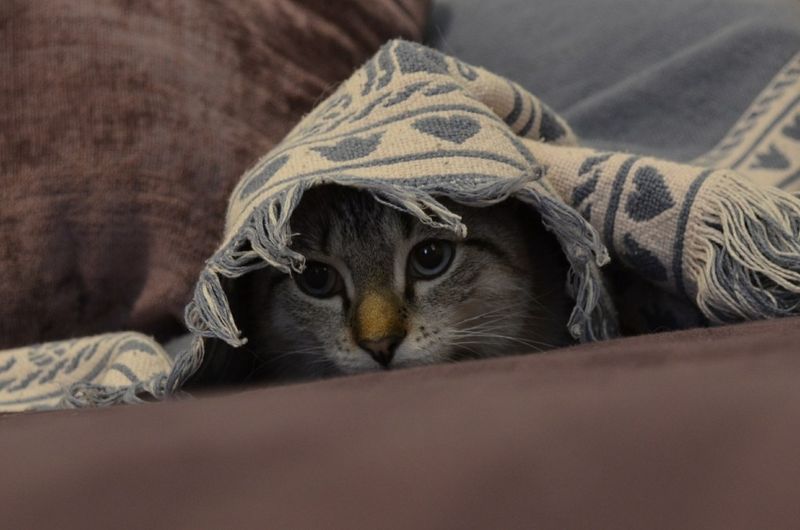
Cats never forget who provided safety during frightening times. Whether it was during a thunderstorm, fireworks, or a visit to the vet, your calming presence leaves a lasting impression.
This explains why cats often seek out their trusted human when scared. The emotional memory of you as their protector stays with them. Some cats will even develop special hiding spots near their comforting person during stressful events.
6. The Quality Of Your Touch
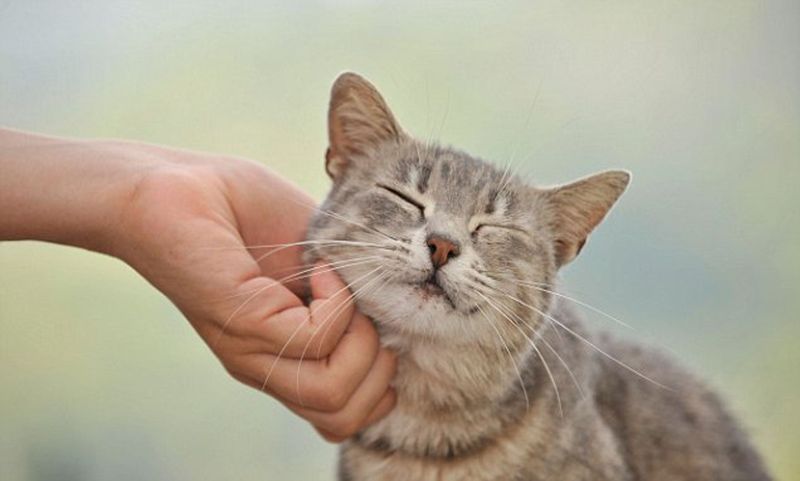
A cat’s skin contains thousands of touch receptors that create detailed memories of how you pet them. They remember if your touch is gentle, rough, respectful of their boundaries, or intrusive.
Cats who receive consistent, gentle handling often become more trusting and affectionate. Meanwhile, those whose boundaries are regularly violated may become skittish. Your cat stores these touch experiences as emotional memories that shape how they interact with you.
7. Times You’ve Betrayed Their Trust
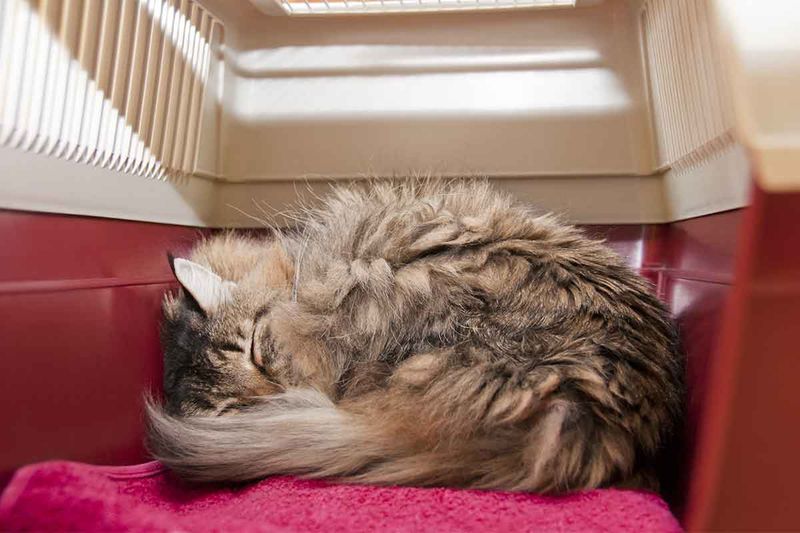
Cats have impressive memories for perceived betrayals. That time you tricked them into a carrier for the vet? They remember it vividly and may hold a grudge.
These emotional memories serve as protection mechanisms. A cat who runs when you bring out the nail clippers is recalling past unpleasant experiences. Rebuilding trust requires patience and positive associations to help them form new, better memories to replace the negative ones.
8. The Playtime Experiences You Share
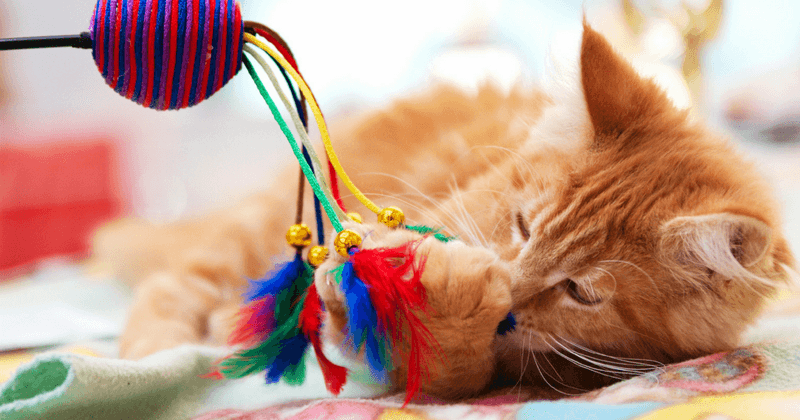
Interactive play creates strong emotional bonds between cats and their humans. Your cat remembers which games you play together and how engaged you become during playtime.
They notice if you’re just waving a toy absentmindedly or truly participating in the hunt. Many cats will bring specific toys to owners who play well with those items. This shows they remember which human provides the most satisfying play experience with each toy.
9. Your Daily Routine
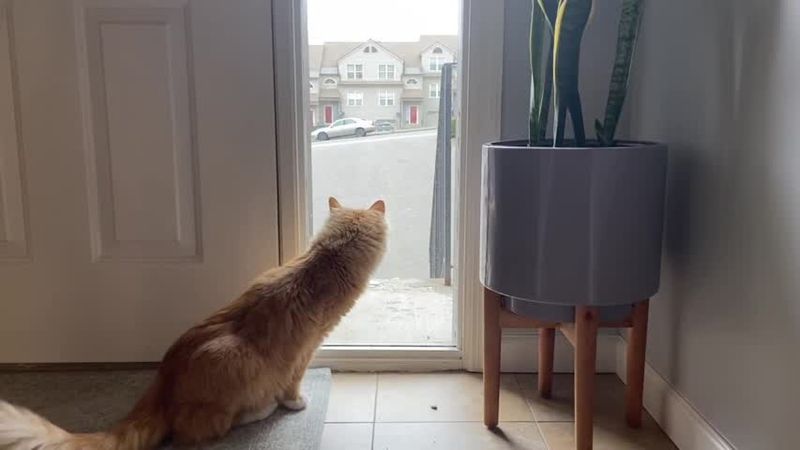
Cats are creatures of habit who find security in predictable patterns. They form detailed memories of your daily schedule and how it affects them.
Your cat knows approximately when you wake up, leave home, return, and go to bed. Many owners notice their cats waiting by the door minutes before their usual arrival time. This isn’t coincidence – it’s your cat’s emotional memory of when their important person returns to them.
10. The Tone Of Your Home Environment
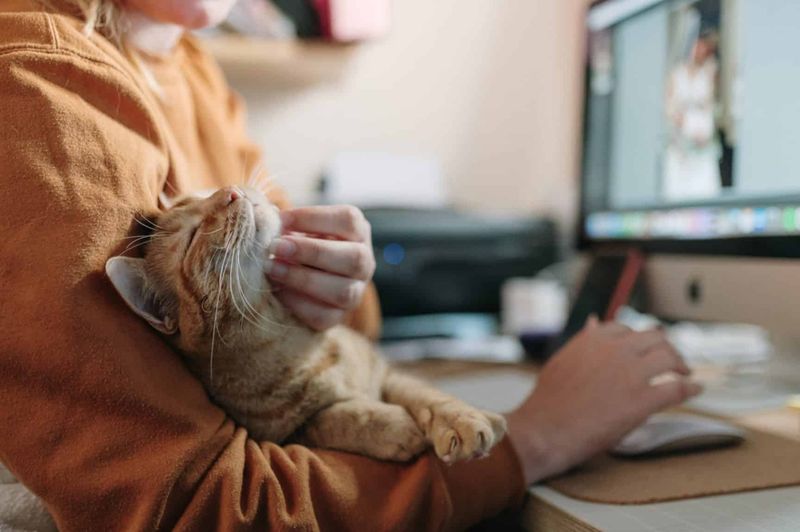
Cats are highly sensitive to emotional atmospheres and remember the general feeling of your home. They notice tension, happiness, calm, or chaos and associate these emotional states with you.
A cat from a peaceful home often becomes more relaxed and confident. Those from tense environments may be more vigilant or anxious. Your cat remembers if your presence typically brings peace or stress to their world.
11. How You Respond To Their Affection
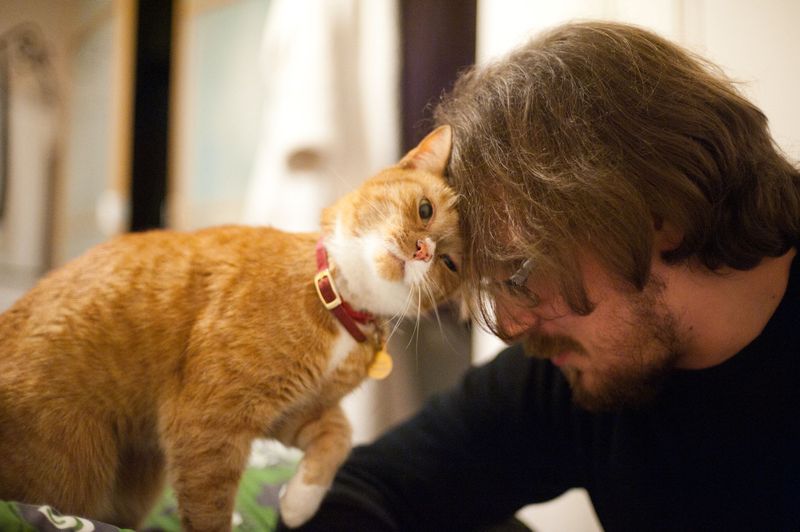
When your cat initiates affection, they’re taking an emotional risk. They remember exactly how you respond to these vulnerable moments.
If you consistently welcome their headbutts, purrs, and cuddles, they learn you’re a safe recipient for their love. Cats who are rebuffed or ignored when seeking affection may become more reserved. Your response to their affection attempts creates powerful emotional memories that shape future interactions.
12. Special Rituals You Share
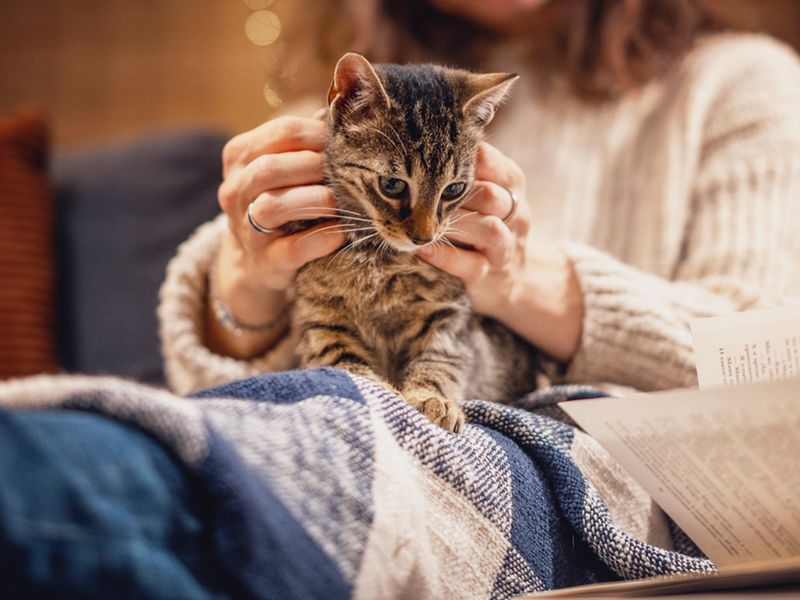
Cats treasure the unique routines they develop with their humans. Whether it’s morning cuddles in bed, greeting you at the door, or sitting together during specific activities, these become cherished memories.
Many cats will actively initiate these special rituals, showing they remember and value them. Your cat might paw at you when it’s time for your usual evening lap session or lead you to bed at your regular bedtime.
13. The Times You’ve Rescued Or Helped Them
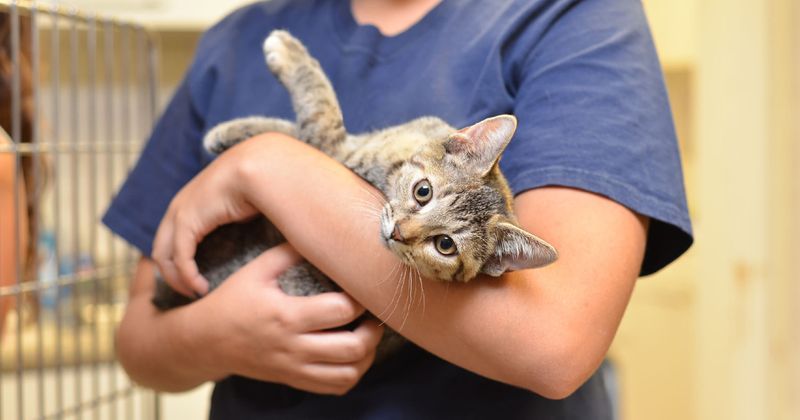
Cats never forget moments of rescue or assistance. Whether you adopted them from a shelter, helped them when injured, or simply removed something scary like a spider, these memories stick.
This explains why many rescued cats show extraordinary loyalty to their saviors. The emotional impact of being helped when vulnerable creates a lasting bond. Some cats will even seek their humans specifically when they need assistance with something troubling them.
14. How You Respect Their Boundaries
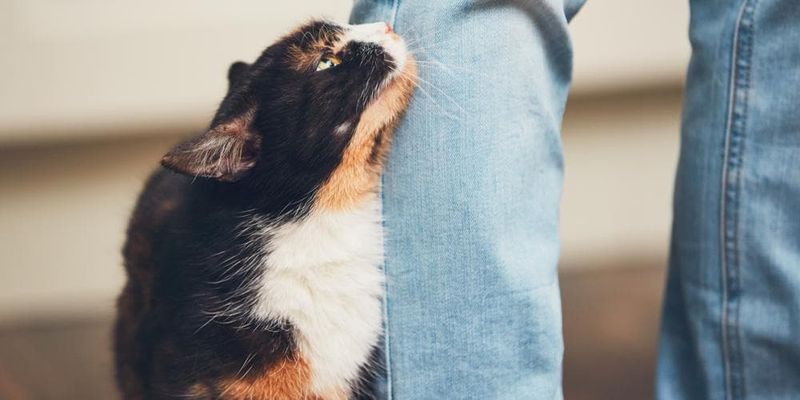
Cats have clear preferences about personal space and handling. They remember if you honor these boundaries or regularly violate them.
A cat whose limits are respected learns their human is trustworthy. They often become more confident and may gradually expand their comfort zone. Your consistent respect for their boundaries creates a foundation of trust that your cat will remember throughout your relationship.


